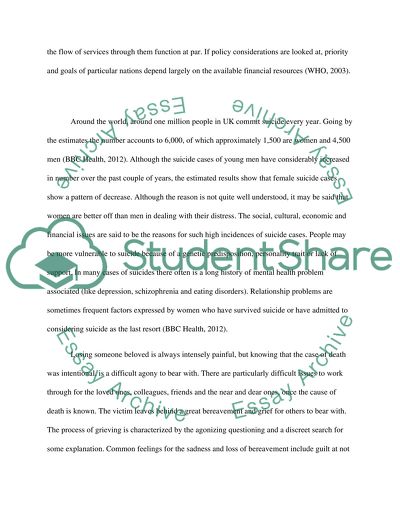Cite this document
(“Social Work: Working with Mental Health Essay Example | Topics and Well Written Essays - 3000 words”, n.d.)
Social Work: Working with Mental Health Essay Example | Topics and Well Written Essays - 3000 words. Retrieved from https://studentshare.org/sociology/1400052-social-work-working-with-mental-health
Social Work: Working with Mental Health Essay Example | Topics and Well Written Essays - 3000 words. Retrieved from https://studentshare.org/sociology/1400052-social-work-working-with-mental-health
(Social Work: Working With Mental Health Essay Example | Topics and Well Written Essays - 3000 Words)
Social Work: Working With Mental Health Essay Example | Topics and Well Written Essays - 3000 Words. https://studentshare.org/sociology/1400052-social-work-working-with-mental-health.
Social Work: Working With Mental Health Essay Example | Topics and Well Written Essays - 3000 Words. https://studentshare.org/sociology/1400052-social-work-working-with-mental-health.
“Social Work: Working With Mental Health Essay Example | Topics and Well Written Essays - 3000 Words”, n.d. https://studentshare.org/sociology/1400052-social-work-working-with-mental-health.


